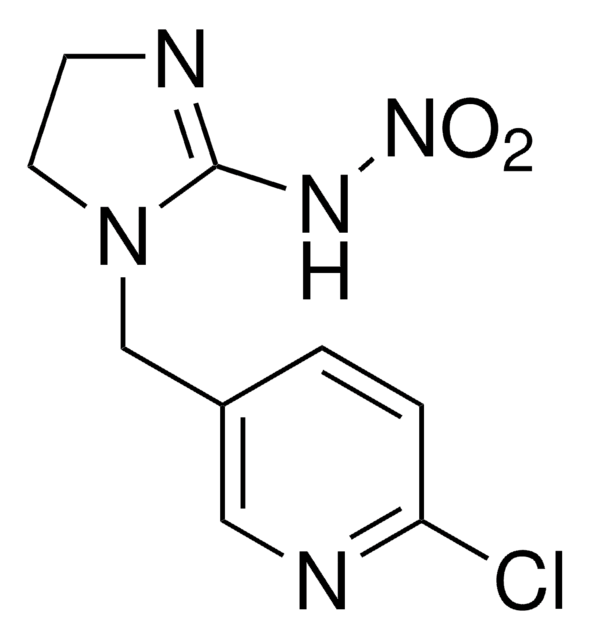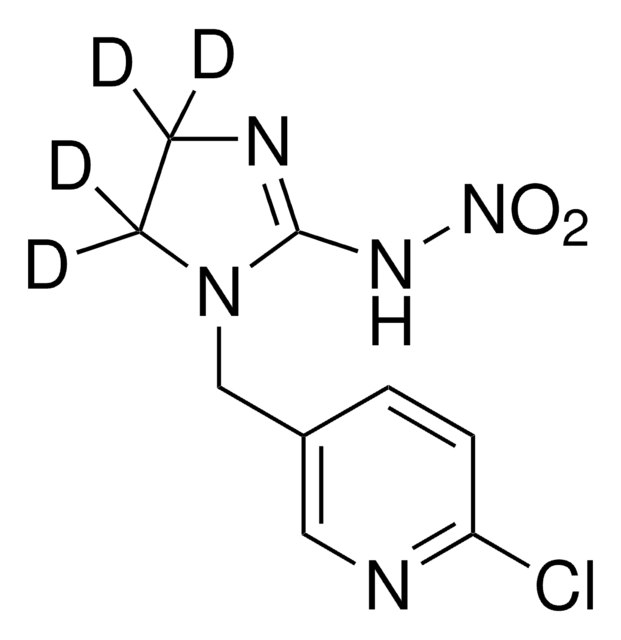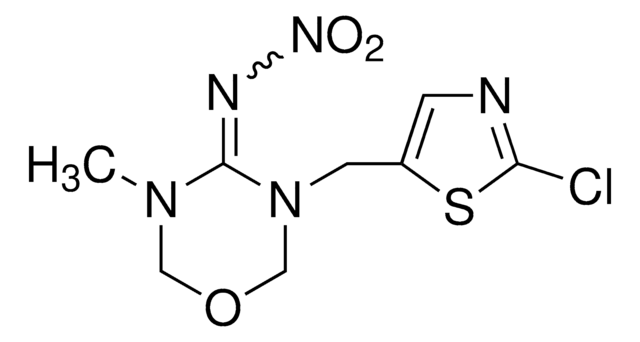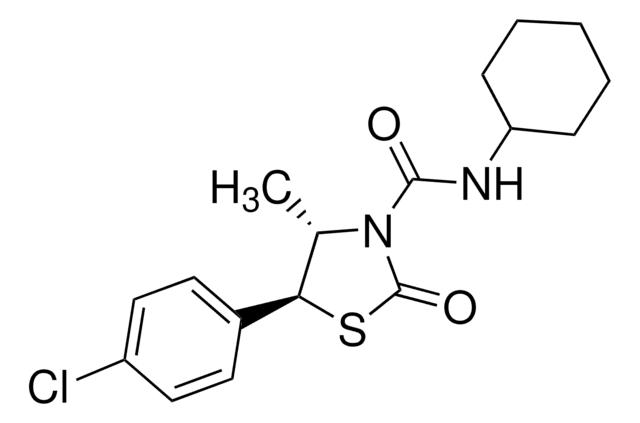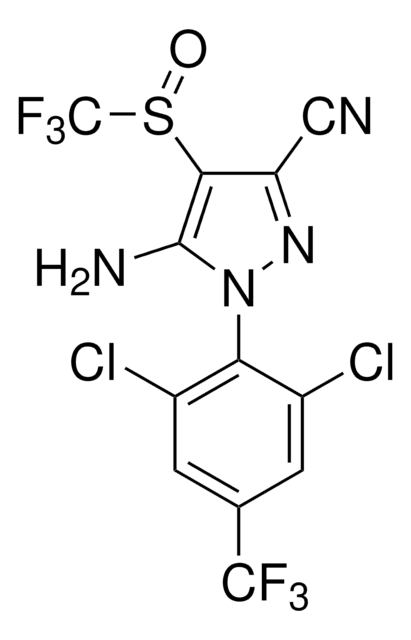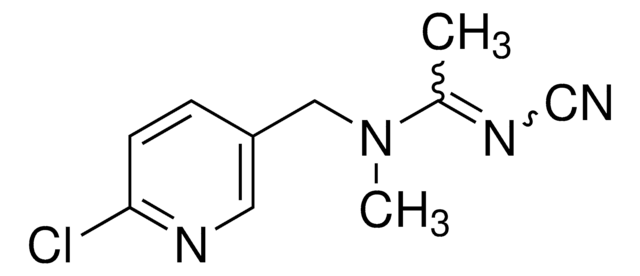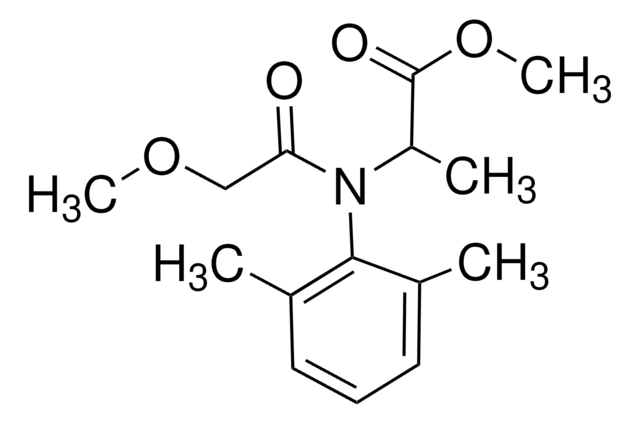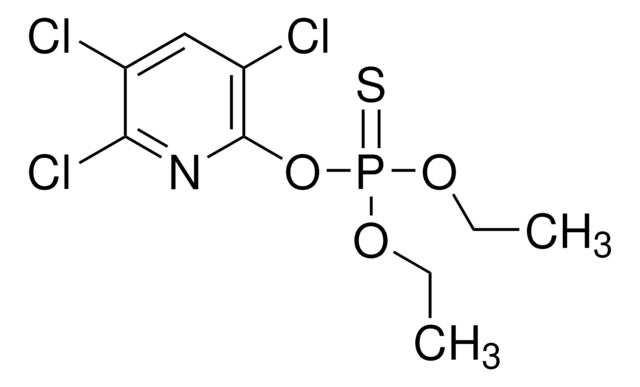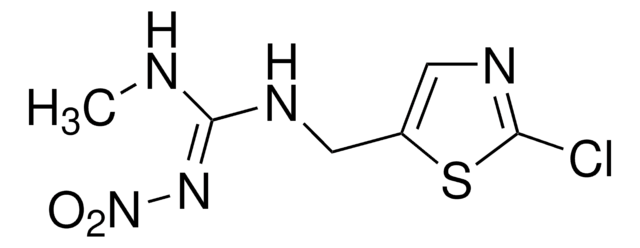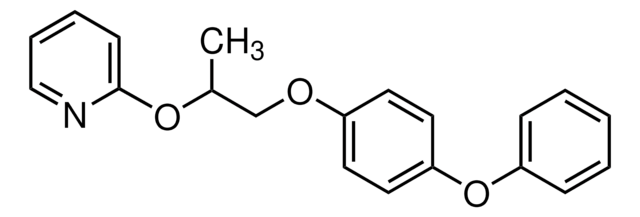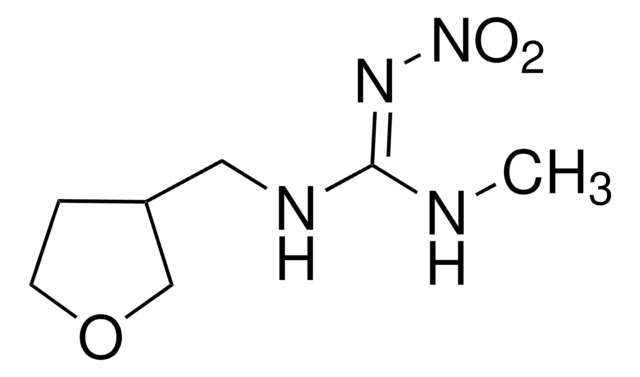68694
Imidacloprid
certified reference material, TraceCERT®, Manufactured by: Sigma-Aldrich Production GmbH, Switzerland
About This Item
Empfohlene Produkte
Qualität
certified reference material
TraceCERT®
Qualitätsniveau
Produktlinie
TraceCERT®
Haltbarkeit
limited shelf life, expiry date on the label
Hersteller/Markenname
Manufactured by: Sigma-Aldrich Production GmbH, Switzerland
Methode(n)
gas chromatography (GC): suitable
Anwendung(en)
agriculture
environmental
Format
neat
SMILES String
[O-][N+](=O)NC1=NCCN1Cc2ccc(Cl)nc2
InChI
1S/C9H10ClN5O2/c10-8-2-1-7(5-12-8)6-14-4-3-11-9(14)13-15(16)17/h1-2,5H,3-4,6H2,(H,11,13)
InChIKey
YWTYJOPNNQFBPC-UHFFFAOYSA-N
Suchen Sie nach ähnlichen Produkten? Aufrufen Leitfaden zum Produktvergleich
Allgemeine Beschreibung
Find more information here: Neonicotinoids
Certified content by quantitative NMR incl. uncertainty and expiry date are given on the certificate.
Download your certificate at: http://www.sigma-aldrich.com.
Anwendung
- Removal of neonicotinoids from wastewater: A study highlighted ferrate(VI)-based oxidation processes for removing neonicotinoids, including imidacloprid, from secondary effluents, suggesting a potential method for reducing environmental contamination from these chemicals (Real et al., 2024).
- Resistance patterns in sheep blowflies: A study on in vitro insecticide resistance patterns in field strains of the sheep blowfly, Lucilia cuprina, included assessments of resistance to imidacloprid, providing insights into the development and spread of resistance in pest populations (Kotze et al., 2024).
- Synergized insecticidal toxicity and risk reduction: The development of mesoporous silica nanospheres for the co-delivery of insecticides and antibiotics was studied to enhance the insecticidal efficacy of substances like imidacloprid while minimizing their environmental impact (Lv et al., 2024).
- Alternative bio-insecticides against greenhouse pests: The efficacy of tangerine peel extracts as a bio-insecticide against Trialeurodes vaporariorum was evaluated, offering a potential alternative to chemical insecticides such as imidacloprid in agricultural pest control (Flores et al., 2024).
Empfohlene Produkte
Rechtliche Hinweise
Signalwort
Danger
H-Sätze
Gefahreneinstufungen
Acute Tox. 3 Oral - Aquatic Acute 1 - Aquatic Chronic 1
Lagerklassenschlüssel
6.1C - Combustible acute toxic Cat.3 / toxic compounds or compounds which causing chronic effects
WGK
WGK 2
Flammpunkt (°F)
Not applicable
Flammpunkt (°C)
Not applicable
Hier finden Sie alle aktuellen Versionen:
Analysenzertifikate (COA)
Die passende Version wird nicht angezeigt?
Wenn Sie eine bestimmte Version benötigen, können Sie anhand der Lot- oder Chargennummer nach einem spezifischen Zertifikat suchen.
Besitzen Sie dieses Produkt bereits?
In der Dokumentenbibliothek finden Sie die Dokumentation zu den Produkten, die Sie kürzlich erworben haben.
Kunden haben sich ebenfalls angesehen
Protokolle
Learn more about Neonicotinoids - active substances used in plant protection products to control harmful insects.
On Friday, April 27, 2018, the European Union decided to ban the use of three neonicotinoid insecticides from use on field crops, having deemed them dangerous to bees. This application demonstrates the analysis of these banned compounds and others from dandelion blossoms using QuEChERS and LC-MS.
Unser Team von Wissenschaftlern verfügt über Erfahrung in allen Forschungsbereichen einschließlich Life Science, Materialwissenschaften, chemischer Synthese, Chromatographie, Analytik und vielen mehr..
Setzen Sie sich mit dem technischen Dienst in Verbindung.